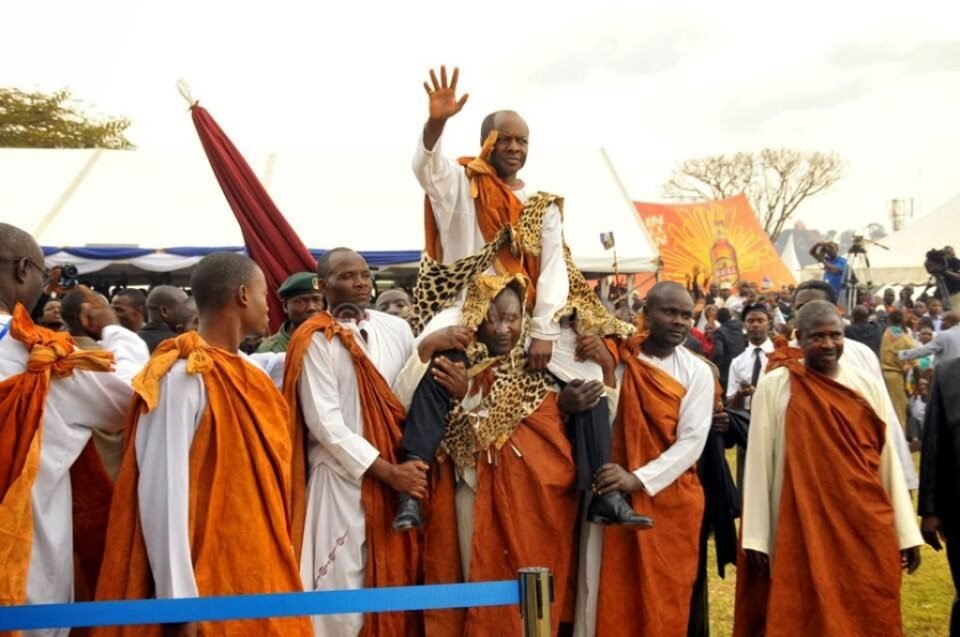In the heart of Uganda lies the Buganda Kingdom, a historical and cultural powerhouse that has shaped the nation for centuries. More than just a traditional monarchy, Buganda is a living testament to a rich history, a complex social structure, and a resilient culture that has survived colonial rule, political upheaval, and modernization. This news story delves into some of the most important facts about this ancient kingdom, from its powerful leaders to its unique customs, which continue to influence the lives of millions of Ugandans today.
A Kingdom with a Storied Past
The history of Buganda is both long and well-documented. It traces its origins back to the 14th century, but it was in the 18th and 19th centuries that it rose to prominence, becoming one of the most powerful and organized kingdoms in East Africa.
- A Political and Military Force: Buganda’s strength was built on a sophisticated political system led by the Kabaka (king). The Kabaka held supreme authority, but his power was balanced by a council of chiefs and a prime minister, known as the Katikkiro. The kingdom’s well-organized army and control over a vast trade network made it a formidable force in the region, rivaling even the great empires of the time.
- The British Protectorate: When the British arrived in the late 19th century, they were impressed by Buganda’s political and social structures. Instead of conquering it, they chose to form a unique relationship, making Buganda the centerpiece of the Uganda Protectorate. This alliance gave the Baganda a privileged position and a degree of autonomy that other ethnic groups did not have, a fact that would have lasting effects on the country’s politics.
- Abolition and Restoration: After Uganda gained independence in 1962, the kingdom was temporarily integrated into the new republic, with the Kabaka, Sir Edward Mutesa II, becoming the first President of Uganda. However, in 1966, a political crisis led to the abolition of all traditional kingdoms by then-Prime Minister Milton Obote. The Buganda Kingdom and its institutions were formally restored in 1993 by President Yoweri Museveni, though without political power. The restoration allowed the kingdom to reclaim its role as a cultural and historical institution.
The Heart of Buganda: Culture and Identity
The Buganda Kingdom’s legacy is most visible in its vibrant culture, which has been meticulously preserved and celebrated for generations.
- The Luganda Language: Luganda is not only the language of the Baganda people but also the most widely spoken indigenous language in Uganda. It serves as a lingua franca in the capital city, Kampala, and its influence can be seen in the names of places and people throughout the country.
- The Clan System: One of the most important aspects of Buganda’s social structure is its clan system, which is based on patrilineal descent. There are over 50 clans, each with its own totem, and they are a source of identity and kinship. The clan system is so important that even a Kabaka cannot marry from his own clan.
- Traditional Attire: The Baganda have some of the most recognizable traditional clothes in the country. The gomesi for women is a long, floor-length dress with large, pointed shoulders, often made from vibrant fabrics. The kanzu for men is a long, white or cream-colored robe. These outfits are worn with pride at ceremonies, weddings, and other special events.
- The Barkcloth: Buganda is famous for its barkcloth, a fabric made from the bark of the Mutuba tree. The process of making it is a UNESCO-recognized intangible cultural heritage. The bark is harvested, steamed, and beaten until it becomes a soft, pliable fabric. This ancient craft is a testament to the kingdom’s rich history and is a source of pride for the Baganda.
Modern-Day Influence and Relevance
Today, the Buganda Kingdom may not have political authority, but its influence on Ugandan society is undeniable. It is a powerful cultural institution that plays a key role in national identity and development.
- A Source of Pride: For many Baganda people, the kingdom is a source of immense pride. The Kabaka is a revered figure who travels throughout the kingdom, uniting his people and promoting traditional values. The kingdom’s institutions, like the royal palace (Lubiri) and the parliament (Lukiiko), serve as important cultural landmarks.
- Promoting Development: The Buganda Kingdom also plays a significant role in social and economic development. The kingdom’s government, the Lukiiko, works to promote education, healthcare, and cultural preservation. It also runs its own radio station, CBS FM, which is one of the most popular in the country and is a powerful tool for cultural preservation and communication.
In conclusion, the Buganda Kingdom is far more than just a historical relic. It is a vibrant and living institution that has profoundly shaped Uganda’s past and continues to influence its present. From its powerful monarchs and unique customs to its enduring social structures, the Buganda Kingdom remains a central pillar of Ugandan culture and a testament to the resilience of tradition.

